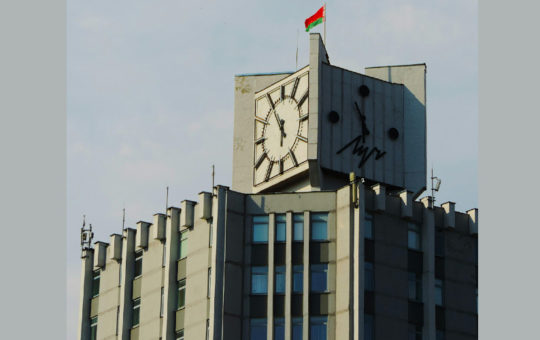
Exploring New Frontiers in Eastern Europe and Eurasian Studies at the University of Exeter
The landscape of geopolitical research is being reshaped with the establishment of a significant new research centre at the University of Exeter. This initiative aims to deepen understanding and challenge existing perspectives on the complex regions of Eastern Europe and Eurasia. With a focus on multidisciplinary analysis, the centre is set to become a hub for pioneering scholarship in international relations, cultural studies, history, and legal frameworks related to these strategically vital areas.
For students and professionals interested in international relations, Eastern European research, and Eurasian studies, this development offers an exceptional opportunity to engage with cutting-edge research and policy analysis. The university’s commitment to fostering innovative approaches signifies an important step forward in addressing regional challenges and global security dynamics.
The Significance of the New Research Centre on Eastern Europe and Eurasia
The newly launched Centre for Eastern European and Eurasian Studies (CEEERS) at the University of Exeter is designed to serve as a leading institution dedicated to scrutinizing the political, cultural, and historical intricacies of the region. It brings together renowned academics whose expertise spans history, international relations, law, and cultural studies, creating a vibrant environment for collaborative research and policy advice.
This centre aims to push beyond conventional narratives by exploring areas such as cultural resilience in Ukraine, the dissent movements within Belarus, and Russia’s internal dynamics. Additionally, it sheds light on networks of elites and corruption, offering critical insights into the mechanisms shaping the region’s stability and security. For scholars and policymakers, these research outputs are invaluable in informing strategies that foster stability and democratic development.
Research Areas and Academic Collaborations
The centre’s research focuses on several key themes relevant to understanding Eastern Europe and Eurasia:
- Cultural resilience and identity: Analyzing how culture sustains communities in Ukraine, Belarus, and Russia despite political pressures.
- Political dissent and social movements: Investigating sources of dissent and the role of civil society in these regions.
- Corruption networks: Examining the links between elites and illicit practices, and their influence on regional stability.
- Historical conflicts and violence: Providing context to ongoing tensions and conflicts through historical perspectives.
By fostering collaboration with international institutions, the centre aims to enhance research capacity and develop policy-relevant insights. Postgraduate and early-career researchers will benefit from targeted professional development programs, encouraging innovative methodologies for regional analysis.
Implications for Policy and Security
Given the strategic importance of Eastern Europe and Eurasia, the research emerging from the centre has significant implications for global security. Insights into regional resilience, dissent, and corruption can inform international policy and diplomatic engagement strategies. Policymakers seeking a nuanced understanding of these regions will find the centre’s outputs a vital resource for crafting informed, effective policies.
Furthermore, the centre’s emphasis on inclusive, multidisciplinary research helps bridge gaps between academic theories and practical policymaking, ultimately contributing to more stable and democratic developments across the region.
Opportunities for Students and Researchers
The establishment of this research centre presents exciting opportunities for students and early-career researchers interested in Eastern Europe and Eurasia. The university plans to support a range of academic activities, including seminars, workshops, and collaborative projects, aimed at building expertise and promoting innovative research approaches.
Prospective students can explore specialized degree programs related to international relations, history, law, and cultural studies with a regional focus on Eastern Europe and Eurasia. These programs are designed to equip graduates with the analytical skills necessary to understand and influence the region’s geopolitical landscape.
Get Involved and Stay Informed
Academics and interested stakeholders are encouraged to connect with the centre by subscribing to the mailing list or attending upcoming events. This engagement facilitates a broader dissemination of knowledge and supports the development of partnerships that promote regional stability and understanding.
For those keen on expanding their knowledge about Eastern Europe, Eurasian studies, or international relations, the University of Exeter offers a wealth of resources and expert-led research. By fostering a collaborative community of scholars and policymakers, the university is positioned to make a lasting impact on how the world understands and interacts with this critical region.
Explore more about the university’s new research centre and its initiatives.
Interested in pursuing further studies? Discover programs at the University of Exeter that focus on international relations and Eurasian studies.
Stay updated with the latest research and policy insights by following the university’s research news and attending upcoming academic events. Engage with experts and expand your understanding of one of the world’s most complex regions.

